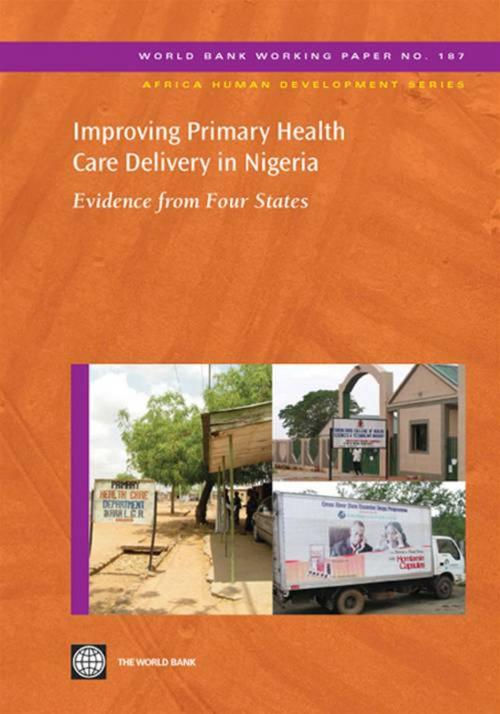Improving Primary Health Care Delivery In Nigeria: Evidence From Four States
Business & Finance, Industries & Professions, Insurance| Author: | World Bank | ISBN: | 9780821383117 |
| Publisher: | World Bank | Publication: | April 7, 2010 |
| Imprint: | Language: | English |
| Author: | World Bank |
| ISBN: | 9780821383117 |
| Publisher: | World Bank |
| Publication: | April 7, 2010 |
| Imprint: | |
| Language: | English |
This study aims at understanding the performance of primary health care providers and the variables driving this performance using the World Development Report (WDR) 2004 accountability framework. The study is primarily based on quantitative surveys at the level of primary health care facilities, health care personnel, and households in their vicinity. These surveys were implemented in four states: Bauchi, Cross River, Kaduna, and Lagos. Despite large Government efforts, the delivery of quality primary health care services remains a challenge in the country. The condition of the infrastructure is poor; many facilities do not have the required equipment or the pharmaceutical products to offer quality care. In addition, household satisfaction with services is low and very few outreach services are provided. The three levels of government, Federal, State, and local governments have some responsibility in the provision of health services. The division of roles and responsibilities between levels, particularly between states and LGs, is complex and not always clear undermining the accountability relationships between citizens, policymakers, and providers. In addition, health personnel salaries are often delayed and are not linked to the provision of services.Clearly defining lines of responsibilities, performance based financing of local governments and providers, and the collection, analysis, and sharing of information are some options that can help to re-align incentives and improve accountability of policymakers and providers. Reinforcing client's power and increasing their demand of services can compensate for weaknesses in the "long route" of accountability for the delivery of primary health care. The Nigerian Government has long recognized the importance of community participation in the delivery of basic health care services and has thus tried to involve the communities in the development of PHC along the lines of the Bamako Initiative.
This study aims at understanding the performance of primary health care providers and the variables driving this performance using the World Development Report (WDR) 2004 accountability framework. The study is primarily based on quantitative surveys at the level of primary health care facilities, health care personnel, and households in their vicinity. These surveys were implemented in four states: Bauchi, Cross River, Kaduna, and Lagos. Despite large Government efforts, the delivery of quality primary health care services remains a challenge in the country. The condition of the infrastructure is poor; many facilities do not have the required equipment or the pharmaceutical products to offer quality care. In addition, household satisfaction with services is low and very few outreach services are provided. The three levels of government, Federal, State, and local governments have some responsibility in the provision of health services. The division of roles and responsibilities between levels, particularly between states and LGs, is complex and not always clear undermining the accountability relationships between citizens, policymakers, and providers. In addition, health personnel salaries are often delayed and are not linked to the provision of services.Clearly defining lines of responsibilities, performance based financing of local governments and providers, and the collection, analysis, and sharing of information are some options that can help to re-align incentives and improve accountability of policymakers and providers. Reinforcing client's power and increasing their demand of services can compensate for weaknesses in the "long route" of accountability for the delivery of primary health care. The Nigerian Government has long recognized the importance of community participation in the delivery of basic health care services and has thus tried to involve the communities in the development of PHC along the lines of the Bamako Initiative.















